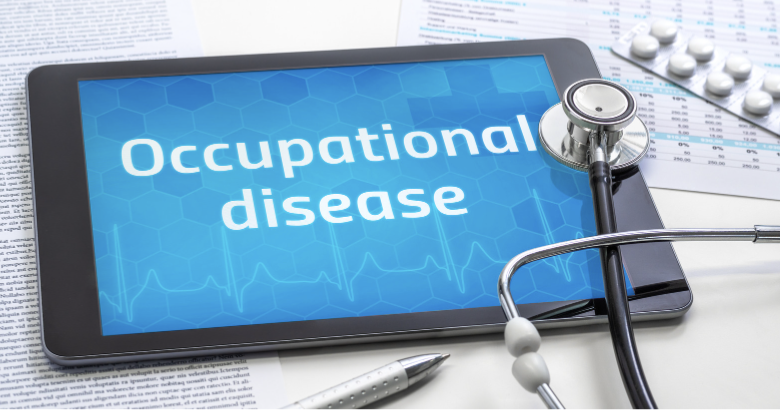You have gone through litigation in your Workers’ Compensation case and the Workers’ Compensation Judge (“WCJ”) found in your favor. Congratulations, you’ve won! What if, however, the Judge’s decision is unfavorable to you?
When a WCJ makes a decision, they issue a written Decision and Order that lays out their “findings of fact” based on the evidence submitted during litigation and “conclusions of law” based on those facts. If the WCJ decides against you, the decision to file an appeal will depend on several factors, mainly, on the findings of fact and conclusions of law determined by the WCJ. It is important to understand the steps for filing an appeal, in case you are involved in this process.
There are certain bases provided by law that may support an appeal. Some examples include:
- The award does not conform with the terms of the Workers’ Compensation Act
- The WCJ made a mistake about the law
- The findings of fact were not supported by sufficient competent evidence
- The findings of fact were procured by fraud, coercion, or other improper conduct of a party
- The findings of fact and conclusions of law do not clearly and concisely state and explain the rationale for the decision so as to provide the basis for meaningful appellate review.
What is the process?
If you did not have an attorney during the initial process, it is highly recommended you consult with an attorney about a possible appeal. Most importantly, an appeal must be filed within 20 calendar days of the WCJ’s decision. This consists of completing a Workers’ Compensation appeal form and filing it with the Workers’ Compensation Appeal Board, sometimes referred to as “WCAB” or “Board,” which is the primary body that reviews WCJ decisions.
The appeal must be written with specificity or else those issues not raised on appeal will be waived and you lose the opportunity to challenge those issues further. That is why having an attorney is crucial. After an appeal is filed, a panel made up of Commissioners from the Board will hear oral argument and accept briefs from both sides. Briefs are concise and detailed written statements that summarize the pertinent facts and law in support of your case.
Upon completion of the briefs, the parties will make oral arguments to the Board, setting forth their arguments, responding to the Board’s questions, and clarifying any additional issues.
The Board will then issue a written Opinion, usually within 60 days. The Opinion can: (1) either affirm the Judge’s Decision and deny the appeal; (2) overturn the Decision and grant the appeal; (3) grant the appeal in part; and/or (4) remand the Decision to the lower court for additional rulings.
What can the WCAB do?
On appeal, the scope of the Board’s review is limited to the evidence that was submitted before the WCJ. So, you will not be able to submit additional evidence on appeal – the Board will not consider it. The Board may review whether the findings of fact made by the WCJ support the conclusions of law, but they will not make new findings of fact unless the WCJ failed to make findings of fact on a crucial issue necessary for the proper application of the law.
Also, the Board will not disregard findings of fact relied upon by WCJ unless it is clear that the evidence did not support the WCJ’s decision. I can tell you that this happens in only rare occasions. The Board does not like to disregard, findings of fact made by the WCJ because the WCJ is the person who heard all the evidence, observed witness testimony, and made credibility determinations. In fact, by law, the Board can only make or alter credibility determinations made by the WCJ in the rarest of instances. Therefore, if the WCJ makes a finding of fact that a witness is credible or incredible, the Board is not likely to change that finding on appeal.
The Board will then do one of several things: (1) they can remand the case back to the WCJ to take additional evidence, if necessary; (2) reverse the WCJ’s decision; or (3) affirm the WCJ’s decision.
A decision by the Board may be appealed further to the Commonwealth Court. Like the WCAB, the Commonwealth Court will hear oral argument, review briefs, and issue a decision. Differing from the WCAB appeal process, however, is the time limit to file an appeal with the Commonwealth Court. An appeal to the Commonwealth Court must be filed within 30 calendar days of the WCAB decision.
What if I disagree with the Commonwealth Court’s Decision?
The final step in the appeals process is an appeal to the Pennsylvania Supreme Court. You have 30 days from the day the Commonwealth Court Decision is issued to file a “Petition for Allowance of Appeal” with the Pennsylvania Supreme Court. Unlike the Appeal Board and the Commonwealth Court, the Pennsylvania Supreme Court can decide whether or not they want to hear your case. Usually, they will hear a case if there has been a glaring legal or factual error by one of the lower courts, or if the case is about a novel, or new, issue that has never been decided in Pennsylvania.
If the Pennsylvania Supreme Court denies your Petition for Allowance of Appeal, the Commonwealth Court’s Decision is final, and whatever they decided is the outcome of your case.
If the Supreme Court hears your case, they will issue a Decision. The Supreme Court’s Decision is final and can no longer be appealed.
Contact Us
If you have gone through litigation on your own and lost, it is not too late to retain an attorney and challenge the decision. Contact our office for a free consultation. We may be able to help.
 (215) 999-1443
(215) 999-1443
